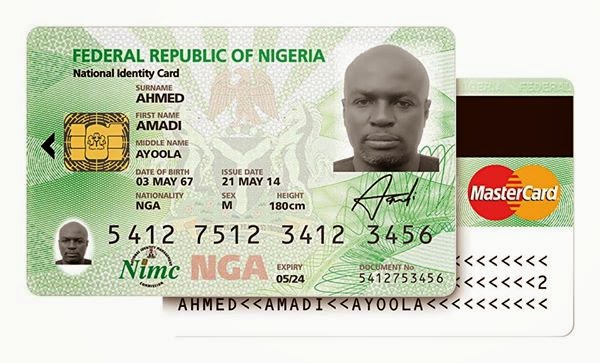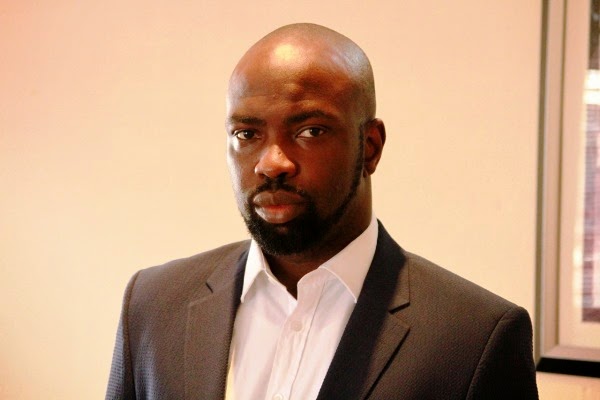It is no more news that Agriculture is key to the future of Africa's largest economy which is why there has been a huge investment drive into this sector of the economy in recent times.
In Nigeria, the cash crops that can be grown in commercial quantities and exported in large volumes includes cocoa, palm oil, guar gum soyabeans, ginger, neem, castor oil, groundnuts, cotton, rubber, cassava, patchouli oil, coffee, coconuts, cashew, shea nuts, sesame seed, nutmeg, fenugreek, pistachios, macadamia nuts, cloves, fishmeal, cinnamon, eucalyptus, cardamom, and garlic just to mention a few.
Expanding agriculture would boost the establishment of processing facilities, as guaranteed supply is a magnet for investors in this viable sector. It would instantly create thousands of jobs, enhance the development of ancillary industries and above all reduce dependency on oil.
Tun brings to you Busayo Sotunde's interview with Nigeria's Lawrence Alaba Afere, a social entrepreneur with a passion for creating wealth and employment for youths using agriculture.
Lawrence Alaba Afere is a farmer and social entrepreneur who originally trained as a Business Administrator graduate at Covenant University, Nigeria. He also trained as a Social Entrepreneur at Northwestern University, Chicago, International Institute for Global Leadership, Ashville, USA (online) and from Kanthari International Institute for Social Entrepreneurs in India. As the founder/director of Springboard Entrepreneurship Development Initiative, he develops entrepreneurship, jobs & wealth creation as well as agricultural programs for unemployed and marginalized youth in Ondo State, Nigeria.
In 2009, based on his innovative approach towards solving youth unemployment in Ondo State, Lawrence was nominated for a national youth award by the Federal Ministry of Youth Development in conjunction with Youngstars Foundation, Nigeria.
He is also a 2014 Mandela Washington Fellow, an initiative of President Obama where he promised to extend his “entrepreneurship and agricultural programs to several unemployed young people across the 18 local government areas in Ondo State, Nigeria
Tell us about the journey towards establishing Springboard farm and why you ventured into agribusiness?
In 2003, I went to University where I studied Business Management with the intention of graduating and getting a well paid job that would help support my family. I remember it was a Friday, November 17, 2006, when my life changed. This change was triggered by a report in the newspaper about the plight of over 30 million unemployed Nigerian youths. It raised the question: “what would happen to the country by 2020 if nothing was done to solve the situation?” It was written in the report that “By 2020, Nigeria will have over 20 million highly skilled criminals” I was really saddened and concerned after reading this report.
Immediately, I felt I might someday become a victim of what this report says. And then my perspective shifted from living for myself to finding a way to help the situation and also become self employed. I found myself thinking about this constantly. After graduating from University in 2007, I returned to my town, Akure, a low-income community in Southwest Nigeria. It was a huge shock for my parents, relatives and friends to see me returning home. They all expected me to remain in the city and get a good job. Thinking of the investment they had in me, my parents felt disappointed when I informed them I wanted to do something different with my life by empowering unemployed young people. After some time, I agreed with my parents and went back to the city where I got a job. However, the dream of doing something different was still in my mind and therefore my dream was very much alive. Finally, I quit the job and went back to Akure.
People, especially family members said I was bewitched! People in Nigeria are suspicious when things are not going as expected. They believe there is a spiritual force that can influence one’s destiny. “Where and how could I start?” I kept asking myself. I was jobless and wanted to do something that would give jobs to unemployed young people in my town and I wanted to have a meaningful occupation myself. I tried several things that failed. For example, selling books to schools. Selling books was not an effective tool for bringing young people together. But this time my undying passion would not let me give up.
In late 2008, with much inspiration from International Institute for Global Leadership, USA, I had an idea to start a farm where we would cultivate and sell farm products. I shared my idea with the unemployed young people in my church and 5 of them showed interest and also invited 9 of their friends. A parent, who was interested in our idea, lent 7 plots of farmland to us free of cost. We named the farm “Youth Farm Project” and 15 of us began to cultivate the land by planting maize.
In the process, I realized that there is a relationship between a farming process and entrepreneurship. The farming process provides a practical experience for learning how to become an entrepreneur. The project has given opportunities to unemployed youth and I to generate some income. In 2012, after my training at Kanthari International Institute for Social Entrepreneurs, I renamed my organization ‘Springboard.’
What do you do at Springboard farm and how do you work to empower people in your host community?
The mission of Springboard is to create an entrepreneurial and productive community of youth from different background who work together to enhance their livelihood and community through sustainable agriculture. On the Springboard farms, located in Akure, we grow plantain, banana, and maize. We also produce plantain chips from our plantain. In future, we plan to grow cocoa, several mints, and all kinds of vegetables. It is also our goal to add value to all our farm produce.
What are the challenges and opportunities in creating a business such as yours?
Our project is a social enterprise and not a business. We maximize wealth and profit. We use every return on our farm to create more value, jobs and projects that benefit the community and Nigeria at large. We use farming as a tool to transform the perspectives of young Nigerians. Our challenge is with the middlemen who supply farmers’ produce to the market. These people make exorbitant profit than the farmers who put so much effort into growing the foods. The farmers are taken advantage of because they lack adequate resources to get their produce to the right market. In future, we want to create the Young farmers Market where our network of farmers display their farm produce three times a week in an open market.
How do you accept people into your free farm and entrepreneurship training?
Our training fall into two parts – 6 months training and the short training. Our six months training is full scholarship. And we give our participants business/farm startup capital (micro credit) after the training. We screen all participants who apply for the training and we take participants based on the following criteria:
#1 A business idea,
#2 A desire to start a farm/business in the community after the training
#3 A commitment towards community development
Our short term training runs for less than a week. This is a paid training for the general public. We have one coming up mid-September and it is on starting a plantain farm.
You are currently working on expanding Springboard. How you intend to do this?
My team has set some big goals for the next 3 years. We will build a factory where we produce plantain chips, corn chips, cocoyam chips and recycle plantain/banana peels and stems. We will start the Youth farmers Market. We will also significantly expand the farm by growing thousands of plantain, banana, cocoa, spinach, several mints and vegetables. We are in the process of getting an international loan and generous donations to construct our factory and training centre. Construction will start by September 2014. Currently, we have over 5 hectares of farmland. So, land is not a problem. We can get more when the need arises. During the planting season in 2015, we are bringing on board, about 10 local and international partners to invest in the farm.
How will this expansion plan benefit people especially in your host community?
Our dream is to become the WHOLEFOODS of Nigeria, create thousands of jobs for Nigerian youth and good food for the Nigerian people. From our expansion plan, over 100 youth will be trained to start farm and green businesses annually and we shall create several jobs in our factory and farms.
In your statement on the fundraising site, you said you intend to manufacture sanitary pad from plantain/banana peels and stems. Can you shed more light on this?
After we started our plantain chips business in 2013, we discovered there are a lot of waste from the plantain peels and stem on the farm. During my fellowship in the U.S.A (Mandela Washington Fellowship for Young African Leaders), I met one of the fellows who produces sanitary pad from plantain/banana peels and stem in her country. I was really interested in what she does because we have lots of these wastes. I never knew it was possible to recycle these wastes into products that benefit the community especially young girls.
In rural communities in Nigeria, if you are a farmer you will understand this; many girls miss class during their menstrual period because they cannot afford the modern sanitary pad. And because they miss classes, this affects their overall academic performance. Springboard will do something about this problem. Once we have the resources, we will convert our plantain peels and stem into affordable sanitary pads for the rural girls.
In your opinion, why should people support agricultural investments?
I see a new wealth coming to Nigeria through the hands of farmers. Farmers will soon become the richest in the country. Presently, some systems are naturally been put in place to make this a reality. For many years, too many farmers have remained cheated and poor. Times are about to change in their favor. Those who want to become prosperous in future should begin to invest in agriculture NOW! Do not wait any longer.
You said your company practice organic farming. Is this farming socially and economically viable and beneficially especially to rural farmers?
The best form of farming practices is organic. This system produces non-poisonous food and protects the environment. On the Springboard farms, we do not apply any chemical. We are 100% organic. This practice comes with huge challenge. For example, it is labour intensive and quite expensive to maintain. Because we do not use weed killer, we need to engage laborers to continuously weed the farm. Also, in the Nigeria, and unlike developed nations where people value what they eat, the practice of organic farming is not common and people do not have adequate information about it. So, organic farm produce are still sold at the same price as inorganic farm produce.
You are one of the 500 fellows at the Washington Fellowship for Young African Leaders. Please share some of your experience ?
50,000 young Africans applied for the fellowship and only 500 were selected. At the programme, I met with President Obama, Michelle Obama and top American business and political leaders. During the fellowship, I received business and entrepreneurship training at one of the top American universities, Northwestern University. And I had the opportunity to visit and learn from top American business organizations such as Google, IBM, McDonalds’ and PWC. The learning experiences gained from this programme will help to take my organization, Springboard to new heights.
Where do you see Springboard farm in the nearest future?
Springboard will become the WHOLEFOODS of Nigeria.
Springboard has launched a fundraising campaign that you can support. Do copy and paste the link below for more details. https://www.indiegogo.com/projects/support-a-new-nigeria-the-springboard-farms
Acknowledgement: Busayo Sotunde, Rural Reporters,Tun Henry



.jpg)





























